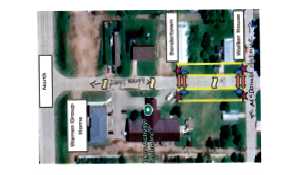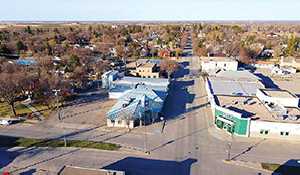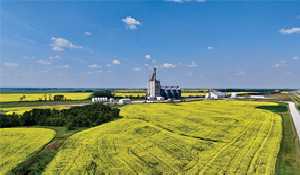Another project may be down the road at Nutrien Rocanville
October 16, 2018, 10:35 am

We are very fortunate in this area to have an economy unlike anything else in Saskatchewan or Manitoba.
We have potash with both Nutrien and Mosaic mines in the area, oil, both TransCanada and Enbridge pipelines, manufacturers like Vaderstad, a vital agriculture industry, and the businesses from hotels to restaurants to gas stations that comes from our location along the TransCanada Highway and in a busy area.
For several years, this entire area experienced a major boom with the $3 billion expansion at Nutrien Rocanville.
The massive project included sinking a new service shaft at Scissors Creek, converting the original service shaft to a second production shaft at the original mine site, and doubling milling capacity by building a second mill.
Things were a little quieter in the area after the Rocanville expansion was completed, and now everyone is remembering just how hectic it was at the construction, now that work is underway on Enbridge’s Line 3 Replacement project and the area is once again filled with contractors and construction workers.
Now Nutrien is looking at what could potentially be another major project at Rocanville—upgrading or potentially replacing the original mill.
“I can confirm that we are looking at three options for Mill #1 at Rocanville,” Will Tingley of Nutrien told me recently. “Right now, we’re currently just performing feasibility level engineering studies.”
Rocanville is an important part of Nutrien’s potash mining capacity.
Nutrien was formed with the merger of PotashCorp and Agrium.
In 2017, when Rocanville was still part of PotashCorp, the mine accounted for about half of all of potash produced by PotashCorp.
Production at Rocanville increased from 2.48 million tonnes of KCl in 2015 to 2.72 million tonnes in 2016 to 4.86 million tonnes in 2017, with the completion of the Rocanville expansion.
The operational capacity of the Rocanville mine is now 5 million tonnes per year.
PotashCorp saw an average realized potash price of US$179 per tonne in the third quarter of 2017, up from $150 per tonne a year earlier.
Recently India signed a contract for potash at $290/tonne CFR (cost and freight), up $50 per tonne from the previous contract.
Looking at those figures, you can do the math and see just how valuable the Rocanville mine is.
Rocanville was always the jewel in PotashCorp’s crown and no doubt will be with Nutrien, too, as it is a lower cost mine that produces a high grade of ore.
Looking at the 2017 PotashCorp annual report, it’s clear just how important Rocanville is to producing more potash at a lower cost.
“We achieved our target in 2017 with potash cash cost savings (excluding foreign exchange and royalties) of $26 per tonne from 2013 levels,” according to the annual report. “Our portfolio optimization efforts, including the ramp-up of our Rocanville expansion, were fundamental to meeting our target.”
Also in the 2017 annual report: “Costs were lower in 2017 due to our portfolio optimization effort, including a greater share of production coming from our lower-cost mines, particularly Rocanville.”
Big impact
It would be premature to speculate on exactly what form any mill upgrade may take. Nutrien is just looking into the possibility of a project at the original mill at Rocanville at this point.
But if Nutrien moves ahead with one of the options it is looking at, no doubt it will have a major impact on this area once again.
Investments in the potash industry in our area have always had a big impact, and if this project comes to pass, it should be no exception.




































